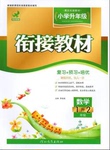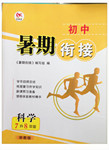题目内容
英语知识运用
阅读下面材料,在空白处填入适当的内容(1个单词)或括号内单词的正确形式。
People do have different ideas about what __1.__(wear). While young people tend to consider more about fashion, personality and how they look when 2. (choose) clothes, elderly people pay 3. (great) attention to whether they appear right, they feel comfortable as well as whether the material is worth 4. price.
How people get dressed also changes over time. Take China 5. an example. In the 1960’s and 1970’s, there were practically only two or three colors people wore-blue, green and gray. The styles of the clothes 6. (be) also very dell. In the 1980’s young people would only wear 7. was in fashion. 8. (recent), we have come to understand that the way you dress 9. (you) is a reflection of your occupation, your background and your personality. So we see different people wear different clothes according to occasions, their likes and 10. (feel).
 鹰派教辅衔接教材河北教育出版社系列答案
鹰派教辅衔接教材河北教育出版社系列答案 初中暑期衔接系列答案
初中暑期衔接系列答案
